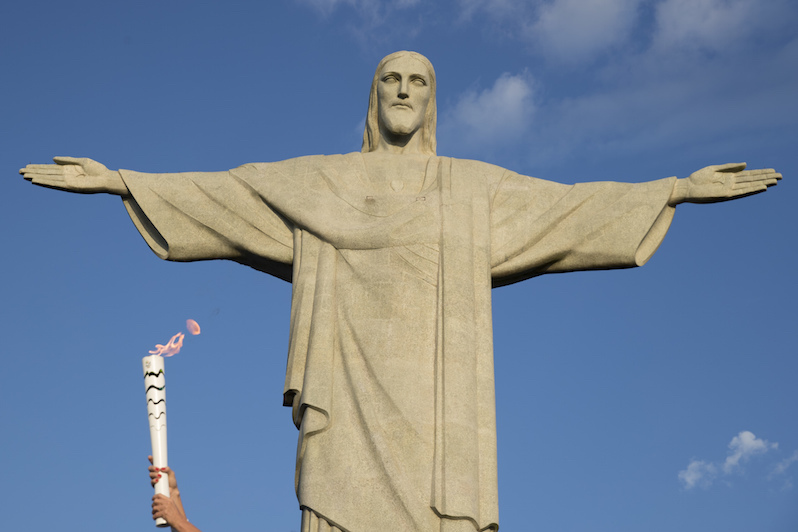The Olympics Are a Colossal Waste and a Shameful Distraction
Like most global sporting events, the international games divert us from the real work of solving societal ills, channel far too many resources away from human needs and amplify nationalist fervor and existing divides. The Olympic torch being carried in front of the Christ the Redeemer statue on the way to the opening ceremony of the Summer Games in Rio de Janeiro on Aug. 5. (Felipe Dana / AP)
1
2
The Olympic torch being carried in front of the Christ the Redeemer statue on the way to the opening ceremony of the Summer Games in Rio de Janeiro on Aug. 5. (Felipe Dana / AP)
1
2

The Olympic torch being carried in front of the Christ the Redeemer statue on the way to the opening ceremony of the Summer Games in Rio de Janeiro on Aug. 5. (Felipe Dana / AP)
Independent journalism is under threat and overshadowed by heavily funded mainstream media.
You can help level the playing field. Become a member.
Your tax-deductible contribution keeps us digging beneath the headlines to give you thought-provoking, investigative reporting and analysis that unearths what's really happening- without compromise.
Give today to support our courageous, independent journalists.









You need to be a supporter to comment.
There are currently no responses to this article.
Be the first to respond.